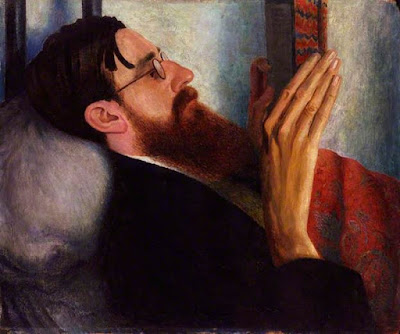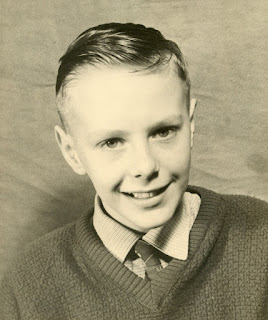New month old post (originally posted 20th June, 2016)

I cautiously dipped into its 1144 pages, wondering what on earth it was, and was quickly drawn in by the preface, an account of Holroyd’s researching and writing of the book.
Lytton’s archive was so extensive it took Holroyd five years to work through it, a period he describes as “… a way of life and an education.” As he ploughed through the plethora correspondence with its detailed accounts of faulty digestion, illness, apathy and self-loathing, he began to experience the same ailments himself, wondering whether they could be posthumously contagious. He resolved that his next subject must be someone of extraordinary vitality.
Even so, Holroyd’s life as a writer and researcher seemed hugely preferable to mine as a trainee accountant. There had to be more edifying things than an accountancy correspondence course. Constructing control accounts and trial balances was anything but an education.
If Holroyd’s account of writing the biography drew me in, his descriptions of the Strachey family had me hooked. There were numerous uncles, cousins and other visitors, many either distinguished, completely potty, or both. Holroyd describes them as “the flower of originality gone to seed.” One uncle who had lived in India continued to organise his life by Calcutta time, breakfasting and sleeping at odd times of day.
Other oddballs walk on and off stage throughout the book. One of my favourites could have been invented by the comedian Ronnie Barker. He was “dr. cecil reddie” Lytton’s one-time headmaster and a leading member of “the league for the abolition of capital-letters.” In retirement he corresponded with “lytton” from his address at “welwyn-garden-city, hertfordshire.”
Having chuckled my way through the early chapters, I became immersed in Lytton’s school and university days, identifying with his shyness and awkwardness in company, the feeling of somehow not fitting in, and his difficulty in making friends. But when he got to Cambridge University he began to thrive. He was elected to the Conversazione Society, otherwise known as the Apostles, a highly secretive group which met in members’ rooms on Saturday evenings to eat sardines on toast and discuss intellectual topics.*
Through the Apostles, Lytton became friends with leading writers and intellectuals of the day, such as Bertrand Russell, G. E. Moore, Rupert Brooke, John Maynard Keynes and leading members of the now-famous Bloomsbury Group of writers, artists and intellectuals which included writers Virginia Woolf and E. M. Forster, and the post-impressionist painters Roger Fry, Vanessa Bell and Duncan Grant.
Many rated Lytton as one of the cleverest people they had encountered, but immediate success eluded him. His history degree was Second Class, his application to the Civil Service unsuccessful, and he was twice rejected for a University Fellowship. He found himself back home writing reviews for periodicals and generally drifting. Churning out articles left little of his scant energy for the great work he hoped to write. Eventually, at the age of thirty-one, he did produce a book, a history of French literature, but it brought neither the wealth nor the success he sought.
I still envied him. I would have been happy to get into any university, let alone Cambridge, and it would have been the sauce on the sardines to be invited to join a secret club. My not-so-exclusive group of mates who met in the Royal Park Hotel to drink five pints and tell sexist and racist jokes did not have quite the same intellectual mystique.
Lytton’s life at this time seemed no more purposeful than mine, with a similar pattern of futility and wasted energies. But it must have been nice, when feeling a bit fed up as Lytton often did, to be able to take oneself off to relatives in the Cairngorms, or to friends in Sussex or Paris. He was no slave to the thirty-seven hour week and three weeks’ annual holiday.
One of the most startling revelations in Holroyd’s book was its frank treatment of bi- and homosexuality. There was irony in Lytton’s alleged response to the First World War military tribunal that assessed his claim to be a conscientious objector. When asked: “What would you do if you saw a German soldier attempting to rape your sister?” he is said to have answered: “I should try to come between them.”
Nevertheless, some women were attracted to Lytton, and Lytton to some women. At one point he proposed to Virginia Stephen (later Woolf), who accepted him, although both rapidly decided it not to be a good idea.
Then, in 1915, he was captivated by an androgynous young painter, (Dora) Carrington (known by her surname only). Their story begins when she crept stealthily upon Lytton’s sleeping form intending to cut off his beard in revenge for an attempted kiss. Lytton suddenly opened his eyes and gazed at her. Holroyd takes up the tale: “... it was a moment of curious intimacy, and she, who hypnotized so many others, was suddenly hypnotized herself.” From that moment they became virtually inseparable. They set up home together and were often simultaneously besotted with the same person, usually male.
Look how much she loved him:
 |
| Lytton Strachey by Dora Carrington (1916) |
In 1918, Lytton’s fortunes changed. His book, ‘Eminent Victorians’, caught the mood of a war-shocked nation, cynical and distrustful of the rigid Victorian morality that had led to the conflict. The title is of course ironic. It dismantles the reputations of four legendary Victorians. To summarise Holroyd: Cardinal Manning’s nineteenth-century evangelicism is exposed as the vanity of fortunate ambition; Florence Nightingale is removed from her pedestal as the legendary ‘Lady of the Lamp’ and revealed as an uncaring neurotic; Dr. Thomas Arnold is no longer an influential teacher but an adherent to a debased public school system; and General Gordon, the ‘hero’ of Khartoum, is shown to have been driven by the kind of misplaced messianic religiosity all too familiar to those returning from the trenches.
The book reflected the attitudes of Lytton’s Bloomsbury circle, in many ways foreshadowing how we live now, especially the displacement of public duty and conformity by private hedonism and individuality. It also revolutionised the art of biography, showing off Lytton’s virtuosity as a writer: his repertoire of irony, overstatement, bathos and indiscretion, his fascination with the personal and private.
Holroyd’s reputation, too, was shaped by his Strachey biography, establishing him as part of England’s literary elite.
For me, both Strachey and Holroyd were a revelation. Despite being worlds away from my own time, place and social class, they helped strip away the veils of convention and conformity that school, church, state and society had thrown over us. The parade of larger-than-life eccentrics showed it was not unacceptable to be different; that you did not have to follow convention or do what others expected; that not everyone had launched themselves into an upward trajectory by their twenties; that we can all have doubts and be demoralised, yet still come good.
Northern working-class England in the fifties and sixties was as rigidly Victorian as the mores rejected by Bloomsbury. People worked long hours, had few holidays and were poor. Authority went unquestioned and unchallenged. But the times they were a-changin’. There were opportunities in abundance. For me, it was not so much Bob Dylan or John Lennon that brought this message home, but a rare biography of Lytton Strachey.
Footnotes:
This was the 1973 edition of the Holroyds biography published by Book
Club Associates. The biography was revised in 1995 to incorporate material that had become
available since the earlier editions, but I still prefer the detail of
the 1973 version. There is now an enormous amount of other material
about Lytton Strachey, Dora Carrington and the Bloomsbury Group.
* The Cambridge Apostles are rumoured still to be active. Members consider themselves the elite of the elite. Membership is by invitation only and potential recruits are unaware they are being considered. Despite the secrecy, one has to wonder whether they might easily be identified by their supermarket trolleys overstocked with excessive quantities of tinned fish and toasting bread on Saturdays. They need to address this security weakness urgently.




